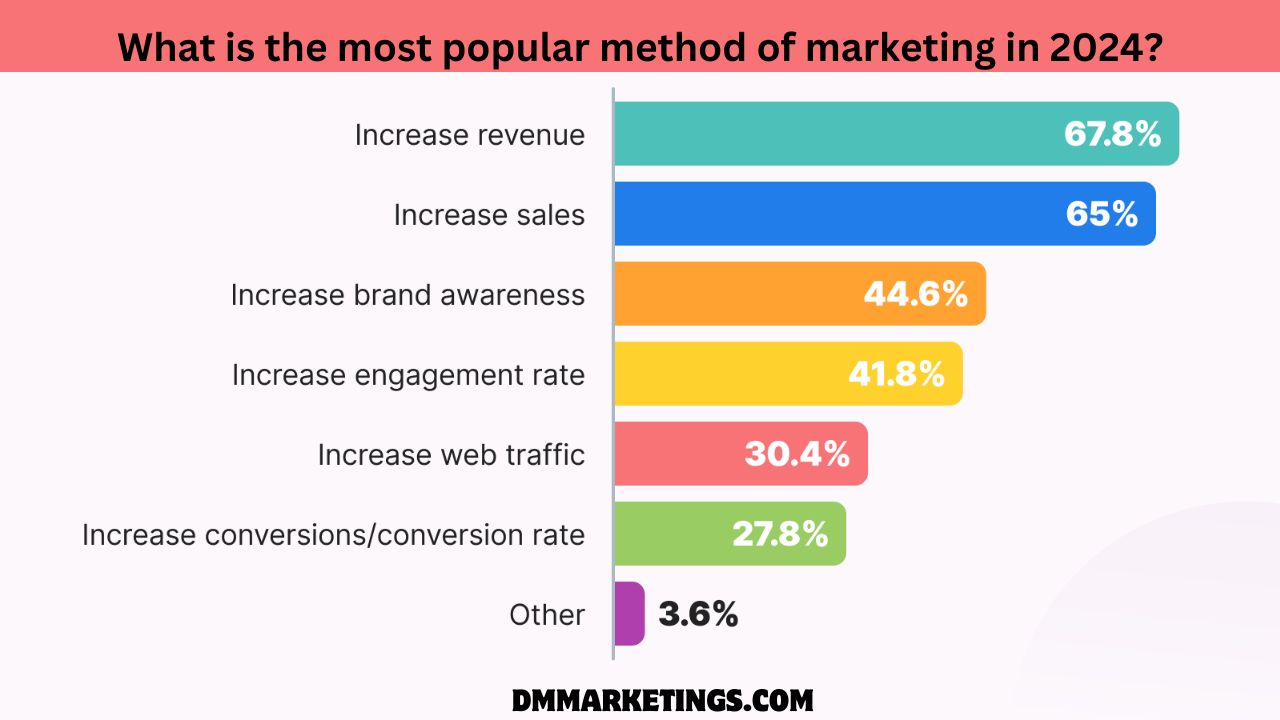In the ever-evolving landscape of business promotion and brand awareness, various marketing strategies have emerged over the years. From traditional approaches to digital innovations, the field of marketing has witnessed a remarkable transformation. In this article, we will delve into the diverse realms of marketing and explore the most common types that businesses leverage to reach their audiences effectively.
most popular method of marketing
1. Introduction
Marketing, in its essence, is the art of connecting with your target audience at the right time and place. Identifying the most common type of marketing is crucial for businesses aiming to maximize their outreach. Whether it’s through traditional means or the vast digital landscape, understanding the diverse approaches can significantly impact a company’s success.
2. Traditional Marketing
Traditional marketing encompasses the conventional methods that predate the digital era. This includes television and radio advertisements, print media, billboards, and direct mail. While these methods have a historical significance, they come with both advantages and disadvantages. They offer broad reach but may lack the precise targeting seen in digital strategies.
3. Digital Marketing
Digital marketing, on the other hand, has become the cornerstone of contemporary promotional efforts. It involves online channels such as websites, social media, search engines, email, and more. The ability to target specific demographics and measure campaign performance sets digital marketing apart, making it a preferred choice for many businesses.
4. Social Media Marketing
One subset of digital marketing that has gained immense popularity is social media marketing. Platforms like Facebook, Instagram, Twitter, and LinkedIn provide businesses with the opportunity to engage directly with their audience. Crafting compelling content and utilizing targeted advertisements are key strategies within this realm.
5. Content Marketing
Content marketing revolves around creating valuable and relevant content to attract and retain a specific audience. Blogs, articles, videos, and infographics are common tools used in this strategy. Successful content marketing not only informs but also establishes trust and credibility.
6. Email Marketing
Email marketing remains a powerful tool for direct communication with potential customers. Newsletters, promotions, and personalized messages contribute to building a strong relationship with the audience. Integration with other marketing channels enhances its effectiveness.
7. Influencer Marketing
Influencer marketing leverages the popularity and credibility of individuals in a particular niche. Businesses collaborate with influencers to promote their products or services. While effective, this strategy comes with challenges such as finding the right influencers and potential controversies.
8. Search Engine Optimization (SEO)
In the vast digital landscape, search engine optimization (SEO) plays a crucial role. Optimizing content for search engines improves visibility, driving organic traffic to websites. A well-executed SEO strategy aligns with content marketing efforts.
9. Affiliate Marketing
Affiliate marketing operates on a performance-based model, where businesses reward affiliates for each customer brought through the affiliate’s marketing efforts. This collaborative approach has seen success in various industries.
10. Guerrilla Marketing
Guerrilla marketing takes an unconventional and creative approach to capture the audience’s attention. Memorable and sometimes controversial campaigns leave a lasting impression, albeit with associated risks.
11. Word of Mouth Marketing
Often considered the most organic form of promotion, word of mouth marketing relies on customers sharing their positive experiences. Encouraging satisfied customers to spread the word can significantly impact a brand’s reputation.
12. Comparative Analysis
Comparing the various marketing types helps businesses determine the most suitable strategies for their specific needs. Some may find success in a combination of approaches, emphasizing the importance of a well-rounded marketing strategy.
13. Future Trends in Marketing
As technology continues to advance, the landscape of marketing is expected to evolve. Emerging trends such as augmented reality, artificial intelligence, and immersive experiences are poised to shape the future of marketing.
14. Challenges in Marketing
Despite the plethora of opportunities, marketers face challenges such as saturation, intense competition, and the need to adapt rapidly to technological changes. Maintaining authenticity in a world dominated by promotional content is an ongoing struggle.
15. Conclusion
In conclusion, the most common type of marketing varies based on the nature of the business and its target audience. A comprehensive marketing strategy often involves a mix of traditional and digital approaches. Understanding the dynamic nature of marketing and staying abreast of emerging trends is crucial for businesses seeking sustained success in the competitive market.
FAQs
- Which marketing type is the most effective?
- The effectiveness of a marketing type depends on various factors, including the industry, target audience, and campaign objectives. A tailored approach often yields the best results.
- How can businesses overcome marketing challenges?
- Businesses can overcome challenges by staying adaptable, embracing technological advancements, and consistently evaluating and adjusting their marketing strategies.
- Is influencer marketing suitable for all businesses?
- Influencer marketing can benefit many businesses, but suitability depends on the industry, target audience, and the alignment of values between the business and the influencer.
- What role does SEO play in content marketing?
- SEO and content marketing are closely intertwined. SEO enhances the visibility of content, ensuring it reaches a broader audience and aligns with the goals of content marketing.
- How can companies stay ahead of future marketing trends?
- Staying informed about emerging technologies, consumer behavior, and industry trends is essential for companies to anticipate and adapt to future marketing trends.
